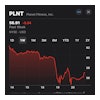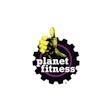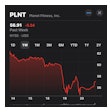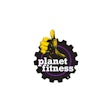Personal trainers should be able to give sound recommendations for increasing lean body mass in healthful ways.
With all of the publicity about the health risks associated with obesity, many fitness professionals forget that some clients are sincerely worried about being too thin. Personal trainers should be able to answer questions about health risks associated with thinness. They should also be able to understand clients' motivations for seeking advice on gaining weight, and to give sound recommendations for increasing lean body mass in healthful ways.
Is thinness harmful to health?
Epidemiological studies have found an association between low body mass index (BMI less than 18.5) and higher mortality rates relative to those of people of normal weight (BMI 18.5 to 25) and people who are overweight (BMI 25 to 30).2 This observation comes as something of a surprise to fitness professionals, as we tend to associate leanness with good health. Remember that statistical associations are not always indicative of causation, however. Critics of these studies have pointed out that people often become thin because of illness that may not have been diagnosed at the time of measurement. In other words, illness may cause thinness rather than the other way around.
But why would overweight people show lower excess mortality rates than thin people? Researchers suggest that many overweight people are now being treated for conditions, such as hypertension and diabetes, that often accompany excess body fat. Such treatment reduces risk of mortality, but does not necessarily mean that all people in the overweight category are "healthy."
Fitness can prevent frailty
When thinness is characterized by a loss of lean body mass, as often occurs with aging, frailty can be the result. Becoming frail in later years predisposes a person to falls that can lead to fractures and other disabilities. Frailty is associated with a lower quality of life as the activities of daily living become more difficult.
Much good research shows that strength training helps to slow the loss of muscle and bone that occurs as people age. Resistance training increases strength even in the very old. Good nutrition with plenty of protein and calories can help people in midlife and older, and slow an age-related decline in lean body mass.
Thin or losing weight?
When clients are interested in gaining weight, it is important to establish the reason for thinness. Most often, your clients simply have inherited thin physiques. Nevertheless, ask about weight history. People who have been losing weight should be referred to their healthcare provider, since weight loss may be indicative of an underlying disorder requiring medical attention.
Resistance training and good nutrition help build muscle
Some clients may seek your advice on gaining weight for aesthetic reasons. Thin men, especially teens and young adults, may wish to become more muscular. Some women also perceive themselves to be too thin, and may ask for your help in gaining weight. You can recommend a resistance-training program for your clients who are trying to increase their size. Nutrition recommendations to add more quality calories to the diet will also be appreciated.
Keep expectations realistic
The effects of good nutrition and an exercise training program will be limited by a person's genetic potential. Help clients establish realistic weight-gain goals, given their body type and family history.
Dissatisfaction with appearance or size can predispose people to the development of eating disorders or drug abuse. Clients who seem to be getting too obsessed with their exercise and diet routines may go on to abuse steroids or other drugs, or to develop eating disorders. If you sense that a client is developing a serious problem, refer him or her to a healthcare provider or mental health professional.
REFERENCES
- Clark, N. Nancy Clark's Sports Nutrition Guidebook. Human Kinetics: Champaign, Ill., 2003.
- Flegal, K.M., B.I. Graubard, D.F. Williamson and M.H. Gail. Excess deaths associated with underweight, overweight, and obesity. Journal of the American Medical Association 293 (15): 1861-1867, 2005.
































